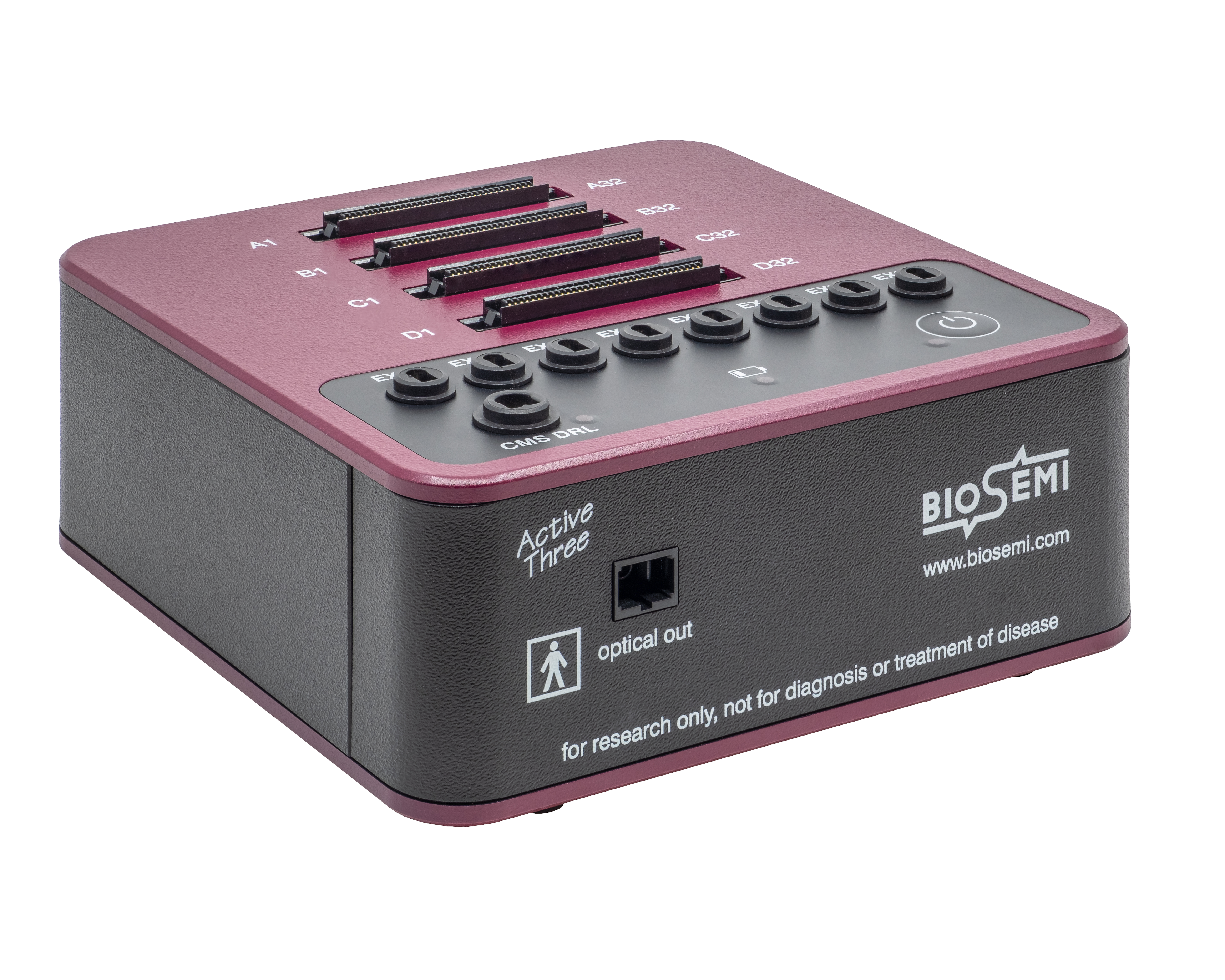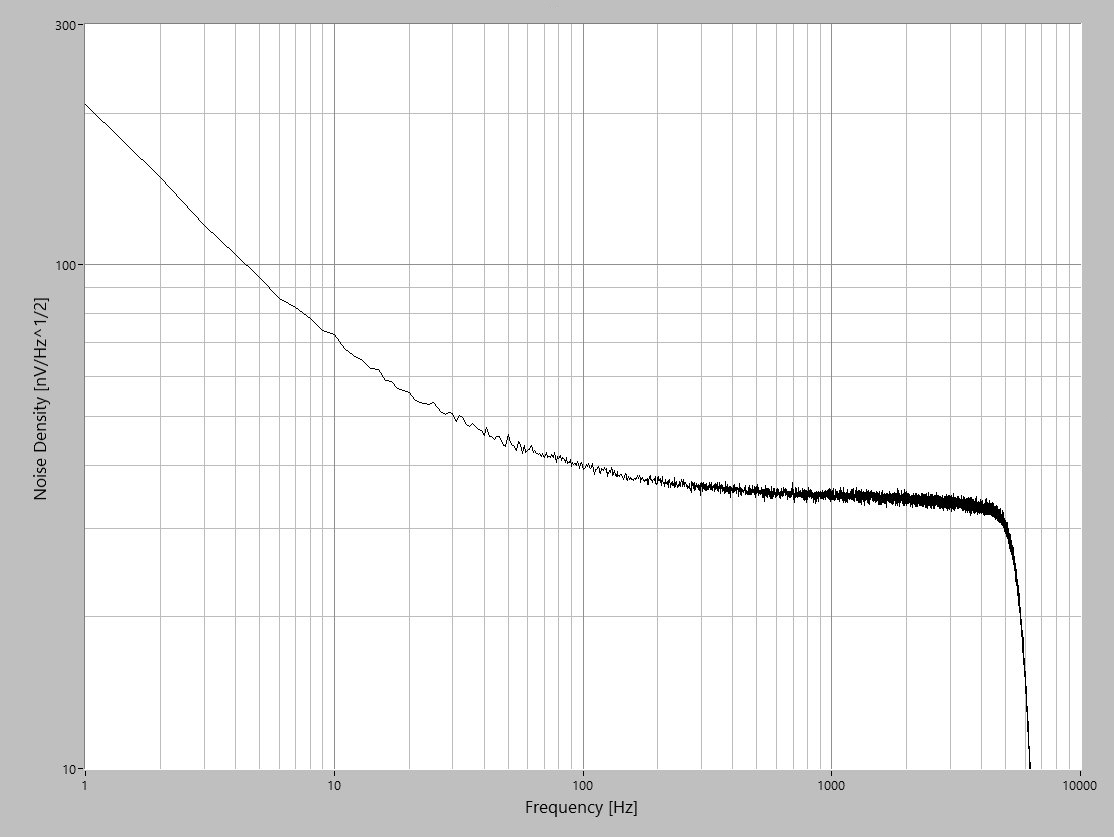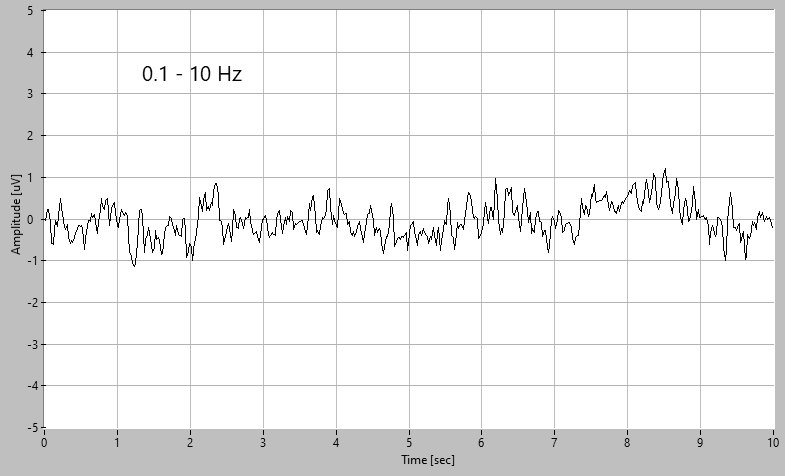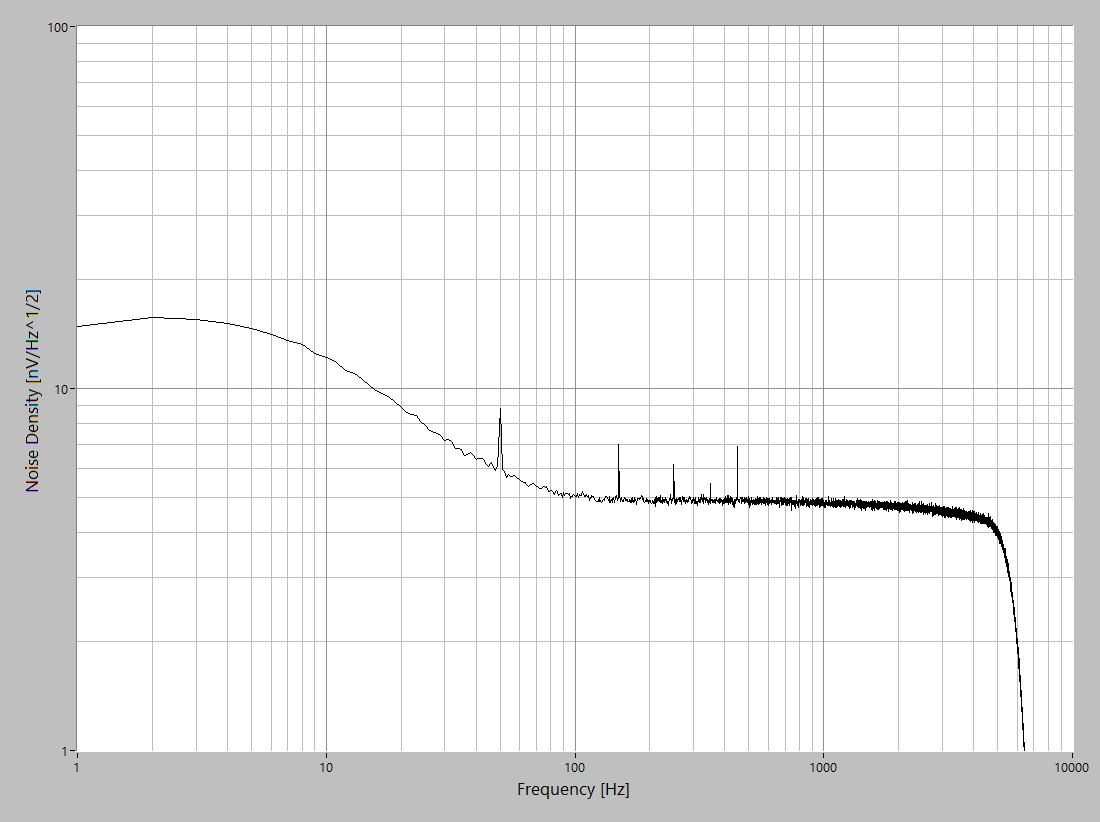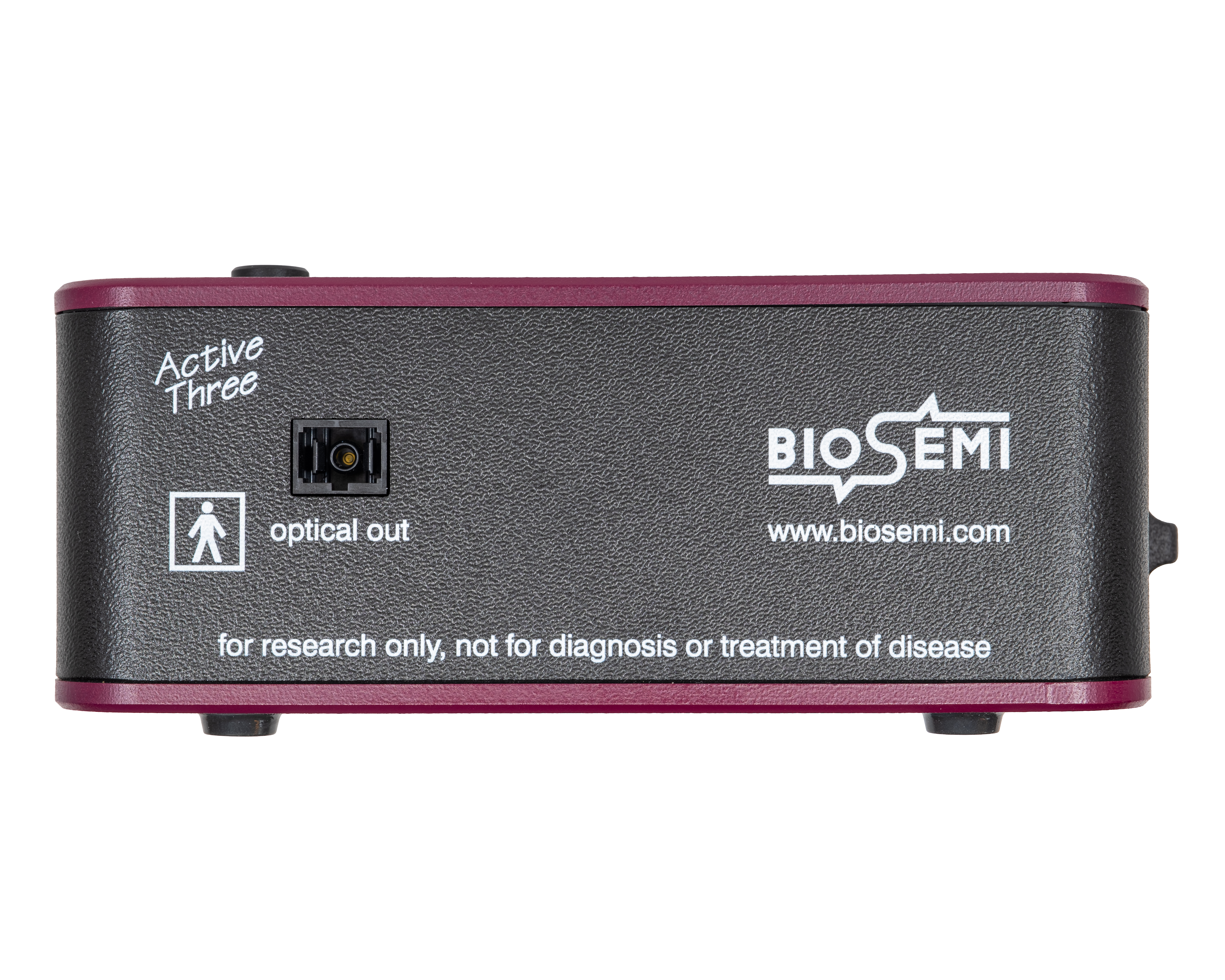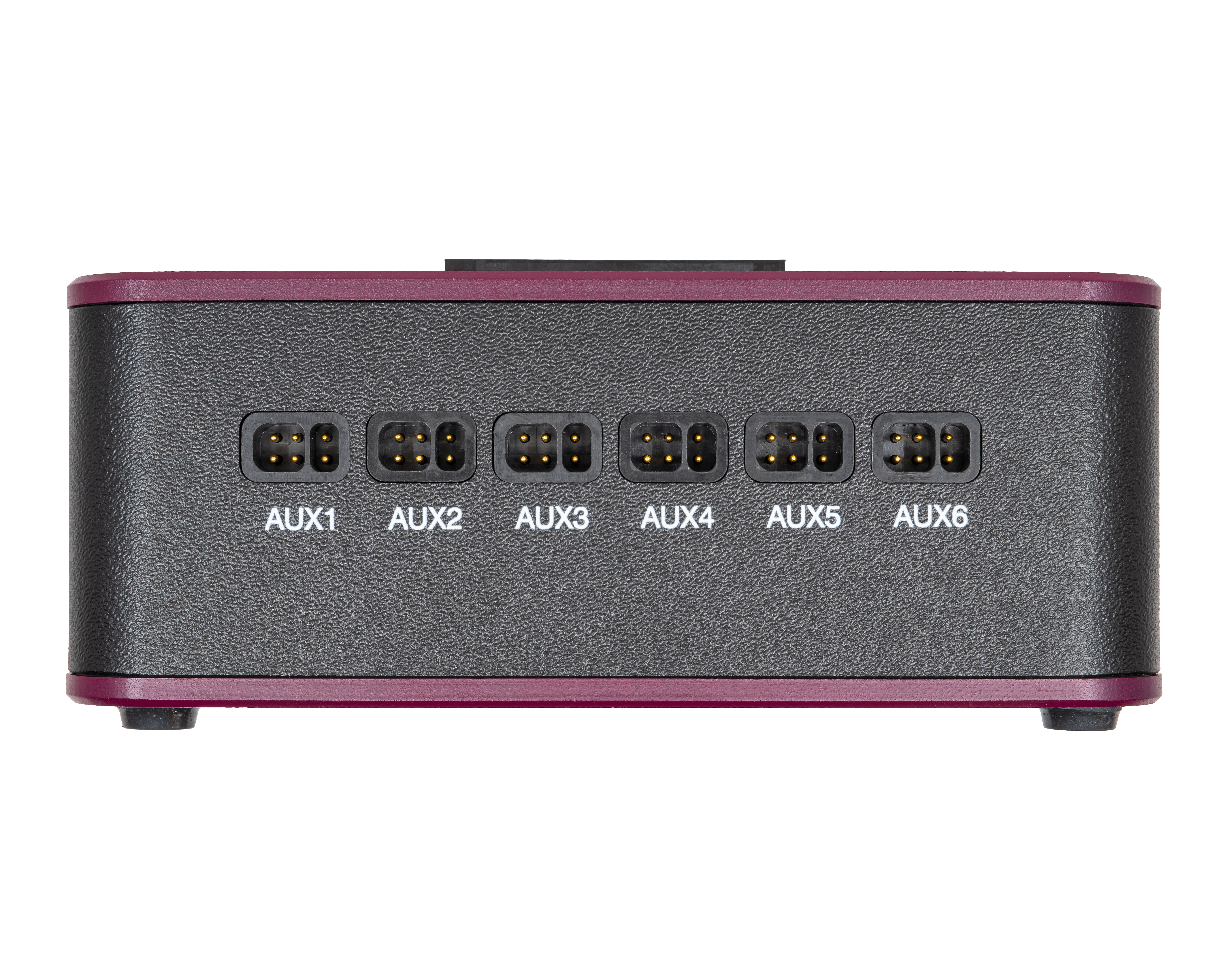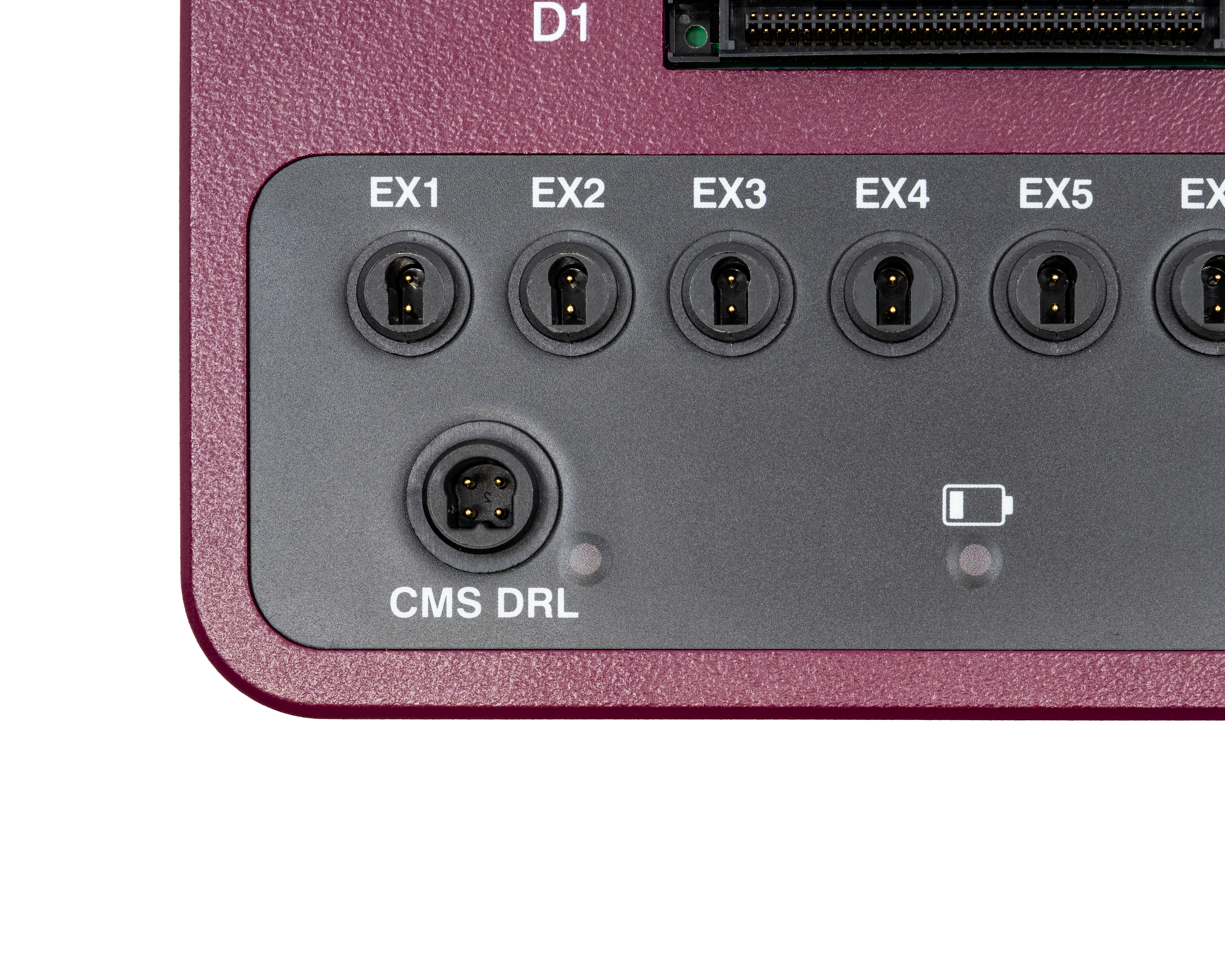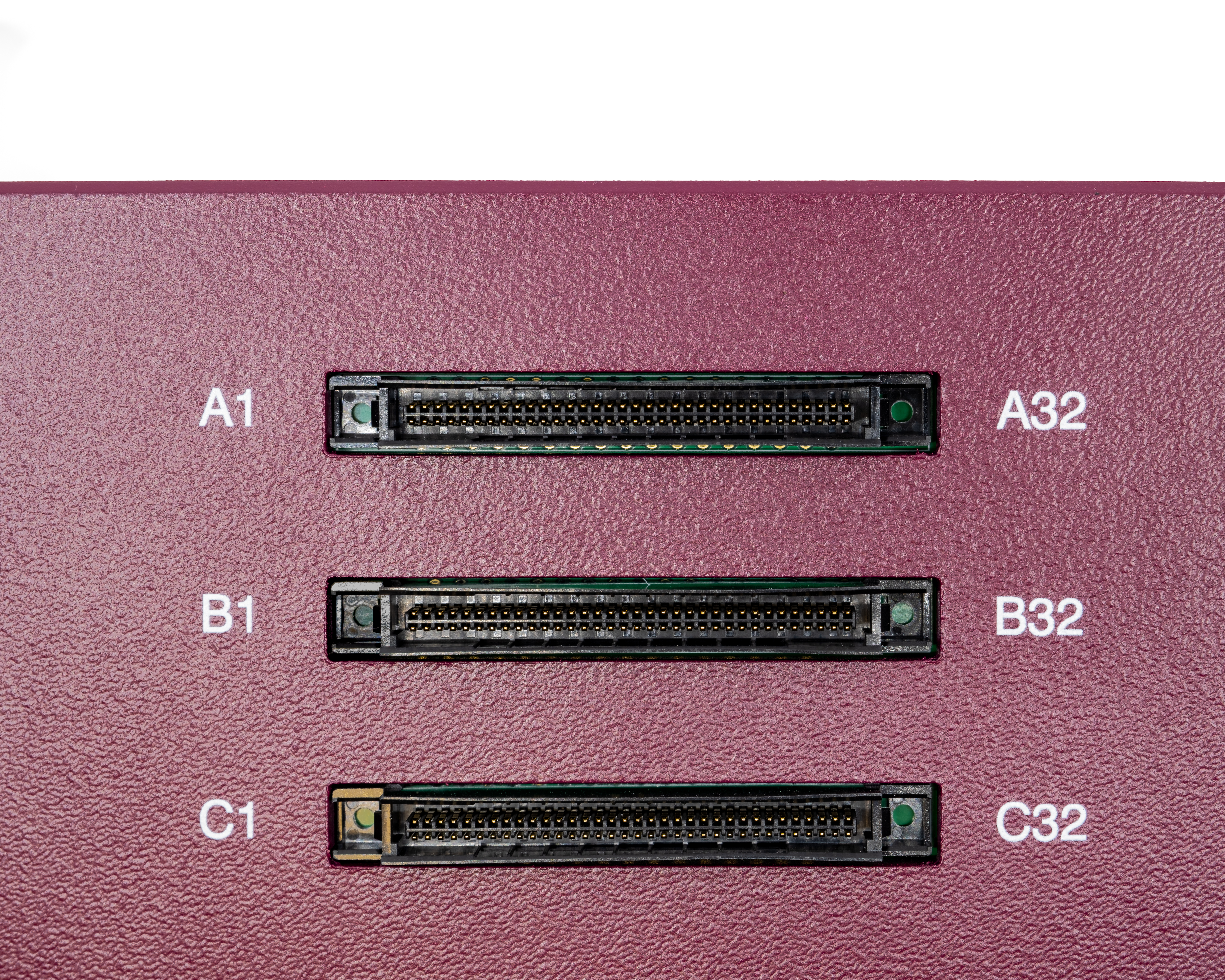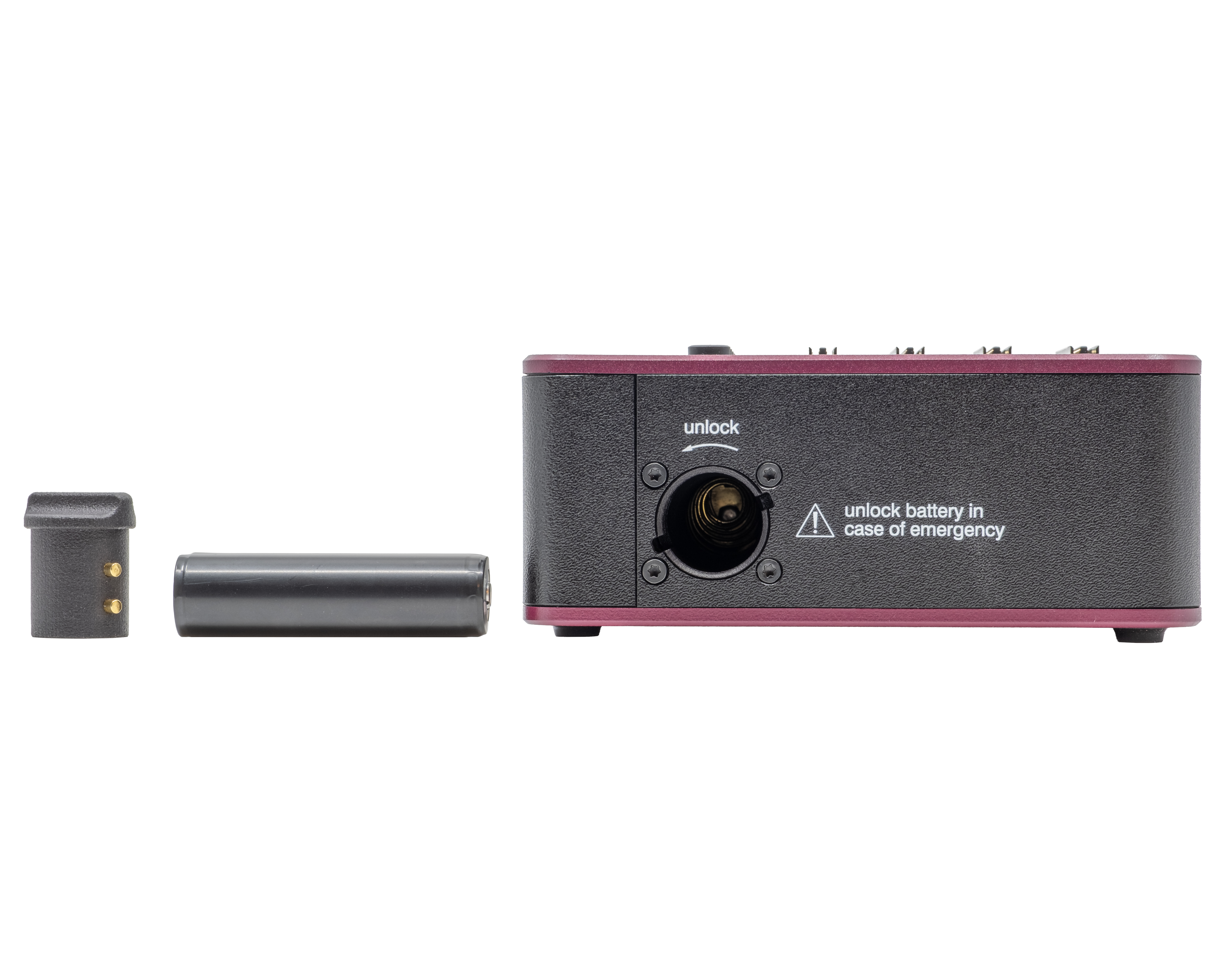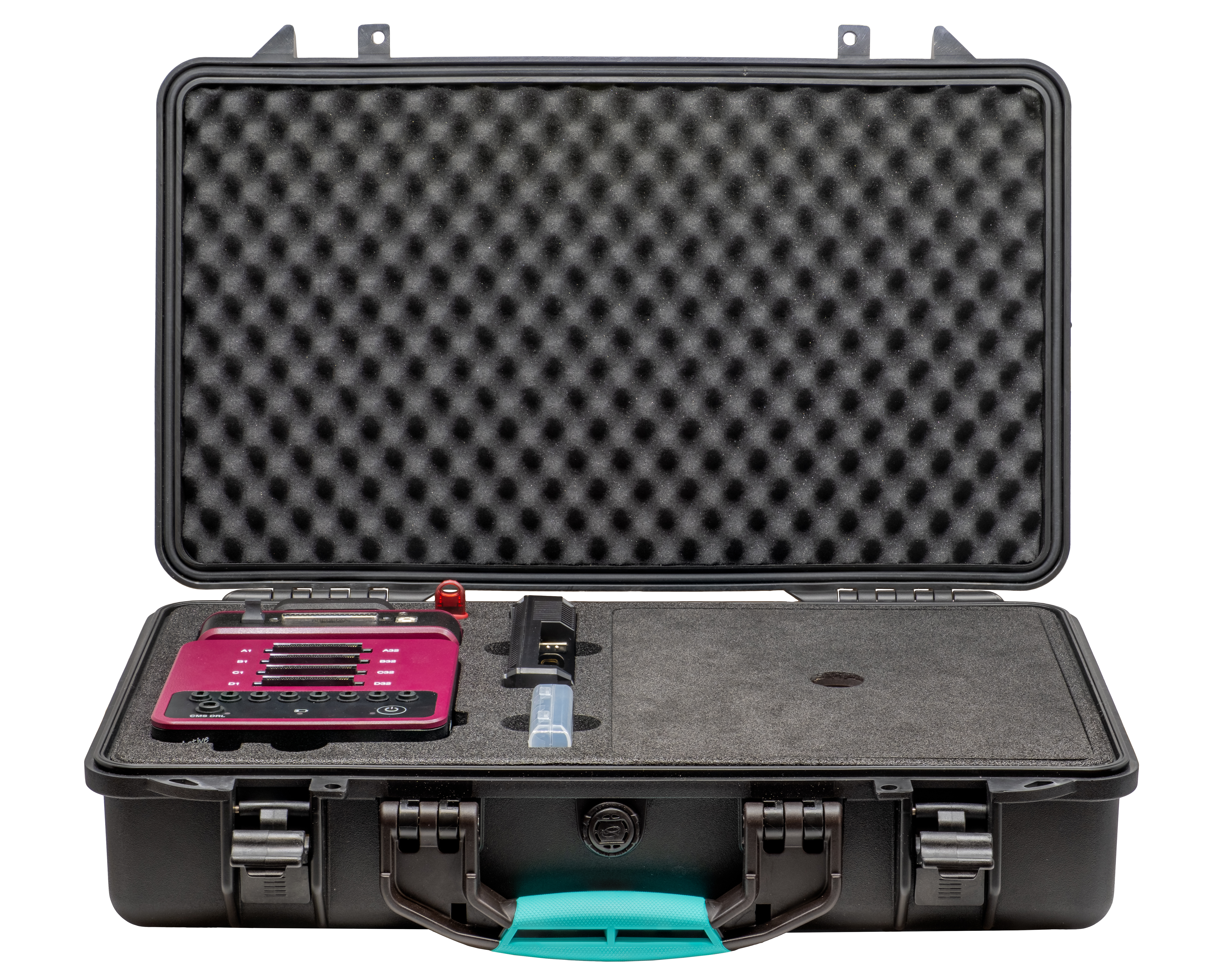ActiveThree
Unsurpassed EEG Signal Quality with Cutting-Edge SAR Technology
- Product No: NS-1095
- Manufacturer: Biosemi
- EEG EMG ECG ABR EP ERP BCI PLETH FFT Respiratory HR HRV
- Accessories
- Request Quote
Description
ActiveThree is the next generation of biopotential measurement systems for scientific research. ActiveThree's signal quality surpasses any EEG system currently available thanks to cutting-edge analog-to-digital converter technology. BioSemi's third-generation active electrodes and amplifier system - the ActiveThree - combines unsurpassed signal quality, portability, low power consumption, and ease of use.
ActiveThree can come configured with up to 142 channels of EEG/EXG electrodes and sensors. All 142 channels are fully DC-coupled and equipped with a novel 24-bit SAR (successive approximation register) A/D converter. This is the latest ADC technology available on the market, allowing for the highest signal quality with high interference suppression, offering a clean frequency spectrum. New low-voltage components further allow for low power consumption compared to its predecessors. As a result, a much smaller-sized battery is used, leading to a decrease in both the size and weight of the main AD-box. Additionally, the battery can be purchased anywhere locally, as it is a standard single battery cell. Auxiliary sensors such as respiration belts, GSR/EDA sensors, and response switches are now automatically detected and configured by the system. Last but not least, the CMS/DRL circuitry has improved in interference suppression.
Auxiliary sensor inputs
The auxiliary sensor inputs on the ActiveThree have been completely resigned with six highly versatile inputs. No matter the type of sensor, auxiliary sensors can selectively be connected to any of the six auxiliary inputs. ActiveThree auto-detects the connected sensor and transmits the correct configuration to ActiView acquisition software. ActiView automatically updates the display to show and record data from the connected sensors, without the need to manually configure the sensor. Available auxiliary sensors include:
- GSR/EDA electrodes
- Respiration belt
- Plethysmography (PPG)
- Temperature sensor (e.g., skin temperature)
- Response switch
Electrodes for Auditory Brainstem Response (ABR)
ABR (auditory brainstem response) electrodes interface directly with ActiveThree through the six universal auxiliary inputs. The ABR active electrode circuitry has been improved and now features lower noise and a wider bandwidth compared to its predecessor. The high-pass frequency is set to 10 Hz and low-pass frequency is increased to 5.4 kHz.
Small Form-factor and Portability
ActiveThree was designed with lightweight and portability in mind. By carefully selecting novel electronic components, the ActiveThree circuitry was designed with a quarter of the power consumption (both supply voltage, as well as current consumption, are halved) compared to the ActiveTwo. None of these new components compromise the performance of the ActiveThree. This allowed for the use of a smaller and more lightweight battery, decreasing both the size and weight of ActiveThree's AD-box. ActiveThree comes in a form factor of 162 x 149 x 62 mm and a mere 800g.
Software Adjustable Speedmode Switch
Compared to its predecessor, ActiveThree's sampling rate can now be adjusted within ActiView acquisition software. ActiveThree records and transmits all signals on the maximum (fixed) sample rate of 16,384 Hz and a bandwidth of 5.4 kHz. Down-sampling can be performed in ActiView software to a minimum of 256 Hz. ActiView uses a 5th-order CIC decimation filter when down-sampling to prevent aliasing. The bandwidth of down-sampled data is 1/5th of the selected sample rate.
System Features
- Cutting-edge SAR (successive approximation register) ADC technology for unsurpassed signal quality and high S/N ratio.
- Smaller form-factor AD-box allows for versatile and portable applications.
- Autodetection of auxiliary sensors for increased ease of use.
- Improved CMS/DRL circuitry for high interference suppression.
- Up to 136+6 channels in a single box.
- Third-generation active electrode: unsurpassed signal quality and ultra-high S/N (signal-to-noise) ratio. Integrated high-frequency filter.
- 24-bit ADC per channel built on SAR (successive approximation register) A/D converters.
- Full DC operation.
- User-selectable sample rate through software.
Technical Specifications
|
Subject isolation |
BF (Body Floating) |
|
Number of channels |
0 to 136 monopolar active electrodes + 6 bipolar auxiliary sensors |
|
Output sample-rate (down-sampling available in software) |
16,384 Hz |
|
Bandwidth (-3dB) |
DC – 5.4 kHz, 0.002 dB ripple in passband |
|
Low-pass response |
140 tap FIR filter, -65 dB @ 8 kHz (Nyquist frequency) |
|
High-pass response |
fully DC coupled |
|
Digitalization |
24 bit SAR converter with 4x oversampling and integrated decimation filter, |
|
Sampling skew and jitter |
< 1 ns |
|
Sample rate accuracy |
0.8 Hz |
|
Quantization-resolution |
LSB = 31.25 nV, no missing codes |
|
Gain accuracy |
0.1 % |
|
Anti-aliasing filter |
1st order analog filter, -3dB at 7.8 kHz |
|
Total input noise (Ze < 10 kOhm), full bandwidth |
2.8 uVRMS (approx. 15 uVpk-pk), see noise spectrum below |
|
1/f noise (Ze < 100 kOhm), 0.1 - 10Hz |
2 uVpk-pk , see pink noise plot below |
|
Input current noise |
< 1 pArms |
|
Input bias current |
< 100 pA per channel |
|
Input impedance |
600 MOhm @ 50 Hz (1012 Ohm // 5 pF) |
|
DC offset: |
< 2 mV |
|
Input range |
+200 mV to -200 mV |
|
Intermodulation distortion, testsignals: 2990 and 3010 Hz |
< 0.01 % , see IMD spectrum below |
|
Channel separation |
> 100 dB |
|
Common Mode Rejection Ratio |
> 100 dB @ 50 Hz |
|
Isolation Mode Rejection Ratio |
> 160 dB @ 50 Hz |
|
Power Consumption |
0.5 Watt (6 channels) to 1 Watt (142 channels) |
|
Battery capacity |
3500 mAh, 3.7 V Li-ion 18650 type |
|
Battery life |
10 hours (142 channels) to 20 hours (6 channels) |
|
Leakage current, normal operation |
< 1 uA rms. |
|
Leakage current, single fault condition |
< 40 uArms |
|
Trigger inputs |
16 inputs on optical receiver (isolated from subject section), TTL level |
|
Trigger outputs |
12 outputs on optical receiver (isolated from subject section), TTL level |
|
Computer interface |
USB2.0, Windows or Linux |
|
Size of AD-box (width x depth x height) |
162 x 149 x 62 mm |
|
Weight of AD-box, including battery |
0.8 kg |
|
Environment |
Indoor use: |
|
Warranty |
3 years (1 year on electrodes) |
|
Conformity |
EN61326 (EMC), EN60601-1 (safety) |
Performance of Electrodes and new ADC Technology
The graphs below depict comprehensive insight into the spectrums of the noise and pink noise levels of the novel Active Electrode and ADC technology of the ActiveThree. The new ADCs of the ActiveThree are based on SAR (successive approximation register) technology for unsurpassed signal quality and high S/N ratio.
Final Noise of the ActiveThree Active Electrodes
ABR Noise with Frequency Extending Down to 10 Hz
- Sampling rate: 16,384 Hz
- Bandwidth (-3dB): 10 Hz to 5.4 kHz
- AC input range: 32 mV peak-to-peak
- DC input range: -1.2 V to +1.2 V
- Noise over full bandwidth: 0.35 Vrms, approx. 2 uV peak-to-peak
- CMRR: 150 dB
- Quantization resolution: LSB is 1,953 pV (1/512 uV)
ActiveThree Picture Gallery
BioSemi Advertorial
Please note: Important! This product is for research applications only. Not a medical device as defined in EU directive 93/42/EEC. Not designed or intended to be used for diagnosis or treatment of disease.

